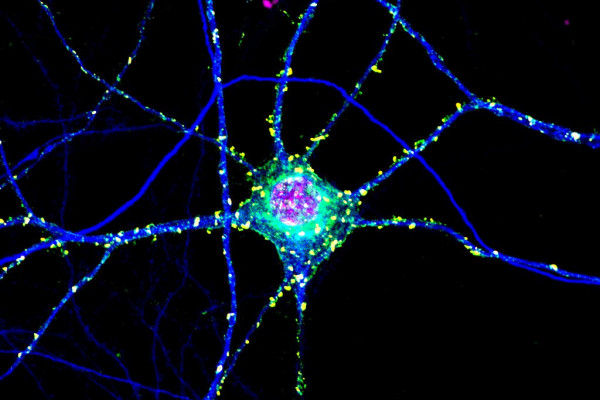Researchers have used stem cells to make neural implants more refined and with less scar...
Interviews with Scientists
Interviews about medicine, science, technology and engineering with scientists and researchers internationally...
Olaf Blanke tells Chris Smith about how a certain region of the brain can be tricked into making you believe there...
Bipolar disorder, also known as Manic Depression, is one of the most common neuropsychiatric disorders. We spoke to...
Is 'survival of the fittest' a bit too simple? We spoke to Loeske Kruuk, whose studys show that, in Red Deer...
This week, Chelsea looks at making music from babies' cries, and Bob explores how babies can spot different...
We spoke to Chemistry World's Richard Van Noorden about how chemistry can help us quit smoking and hide the signs...
Joel Veitch of Rathergood.com with his suggestion for measuring risk using the unit the 'Curtain'.
This week, Chelsea and Bob update us with some news about the sound of muscles and treating depression with yoga.
Janet Sumner discusses how the meteorite we're familiar with may have just been the straw that broke the dinosaur...
We spoke to Peter Kelemen, who studies the earthquakes that originate deep in the mantle of the Earth
Michael Watts on how to search for arsenic in contaminated land, and the impact on people's health
This week, Bob and Chelsea tell us about seed that sow themselves and the future of domestic robots!
We spoke to Dr Trevor Emmett, lecturer in Forensic Science at Anglia Ruskin University about what forensics is, an dhow...
Serena Marks tells us how you might not lose the goodness of apples when making cider, and in fact that cider might be...
This week Bob and Chelsea discuss how lifestyle affects obisity.
Mark Peplow talks about the latest Chemistry news
Prof. Nicky Clayton on her studies with corvids - a group of birds who plan, scheme, steal and even make tools.
This week, Chelsea finds out what rock music sounds like on other planets, and Bob uses lasers to simulate the...
Meerkats are amongst the most cooperative animals in the world, but how is their society structured? Tim Clutton-Brock...
Terry Hurford tells us about a geyser on one of Saturns moons so powerful it puts water into one of Saturn's rings.
This week, Chelsea and Bob look at diseases of the brain. Chelsea sniffs out a new way of screening for Alzheimers...
